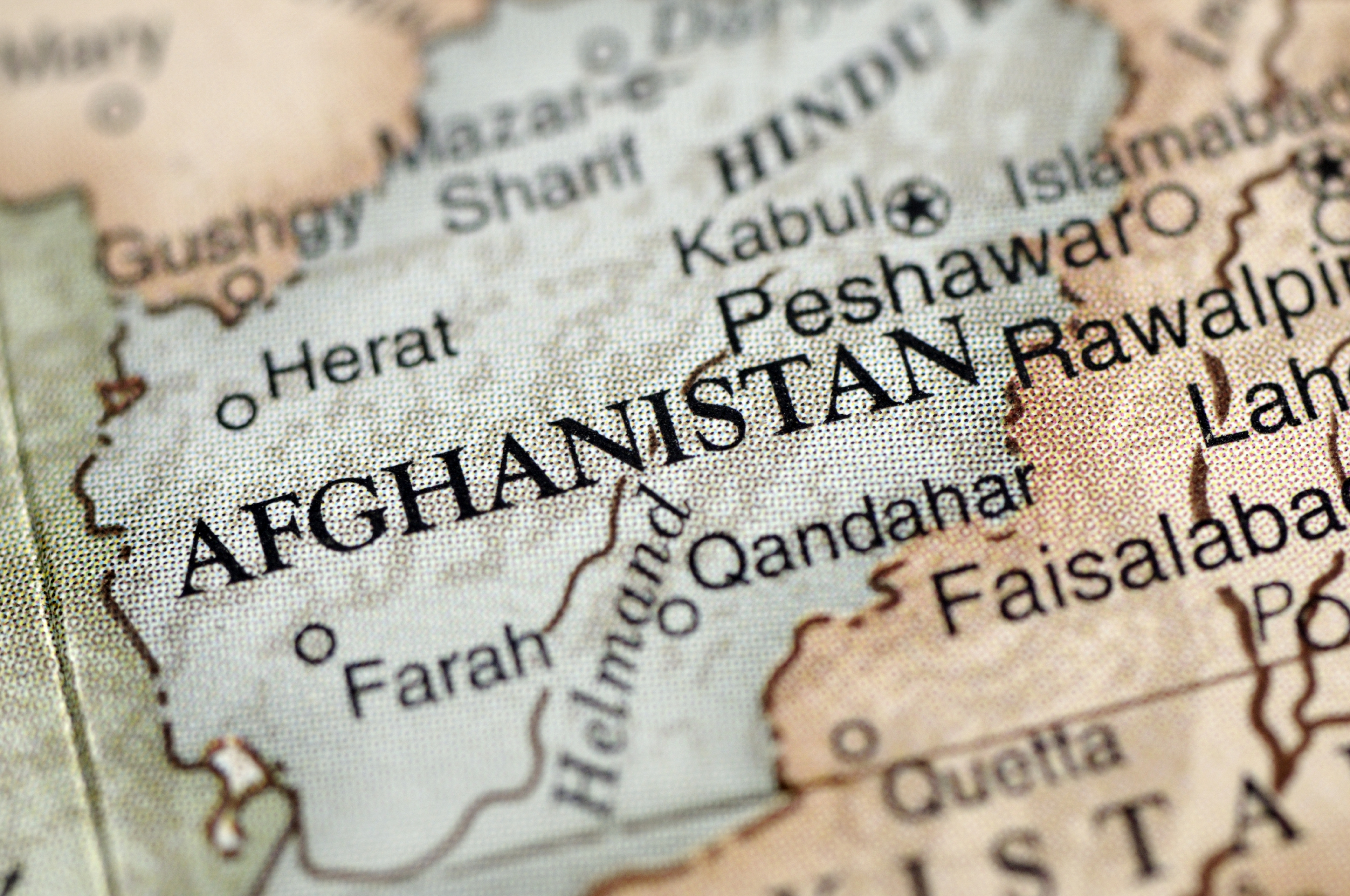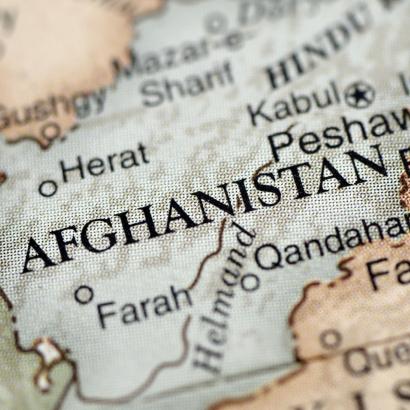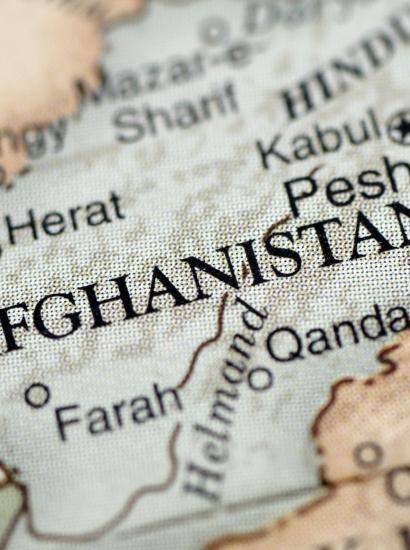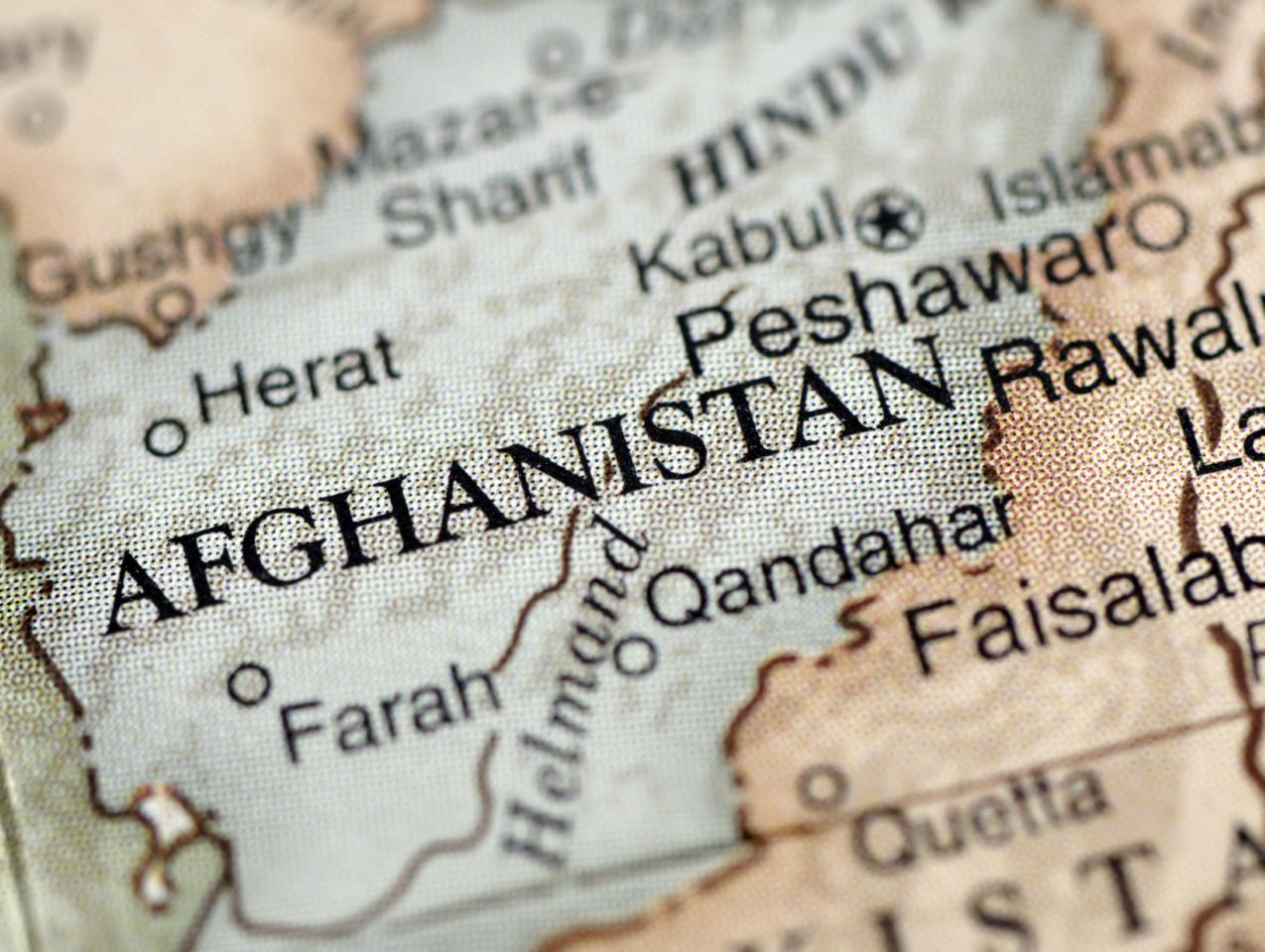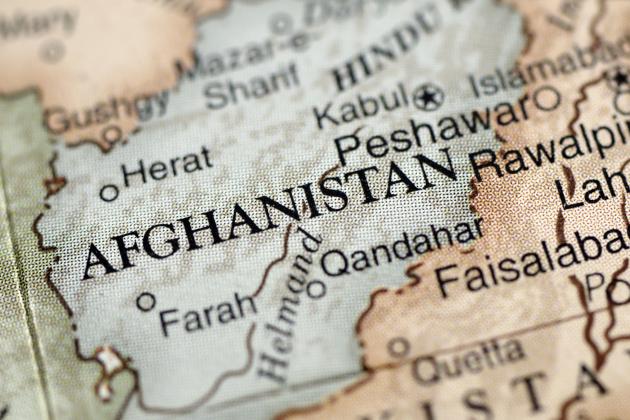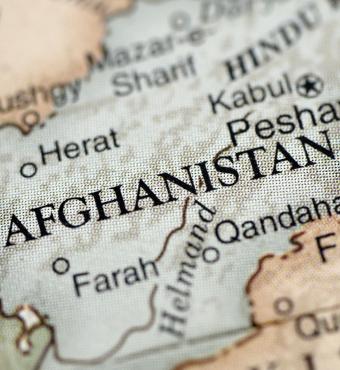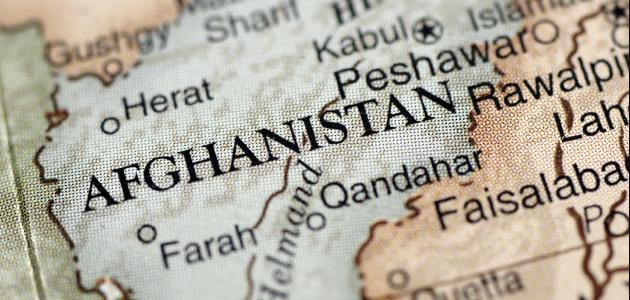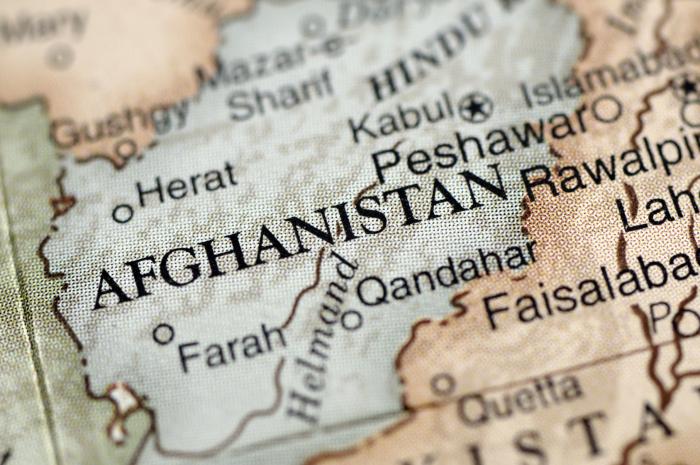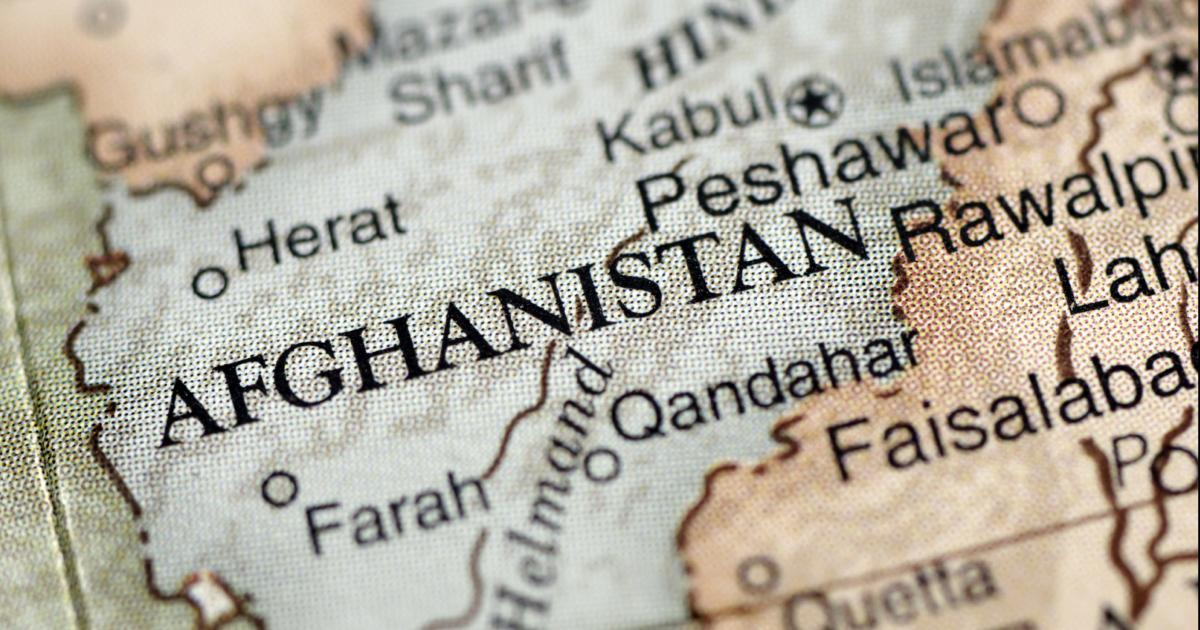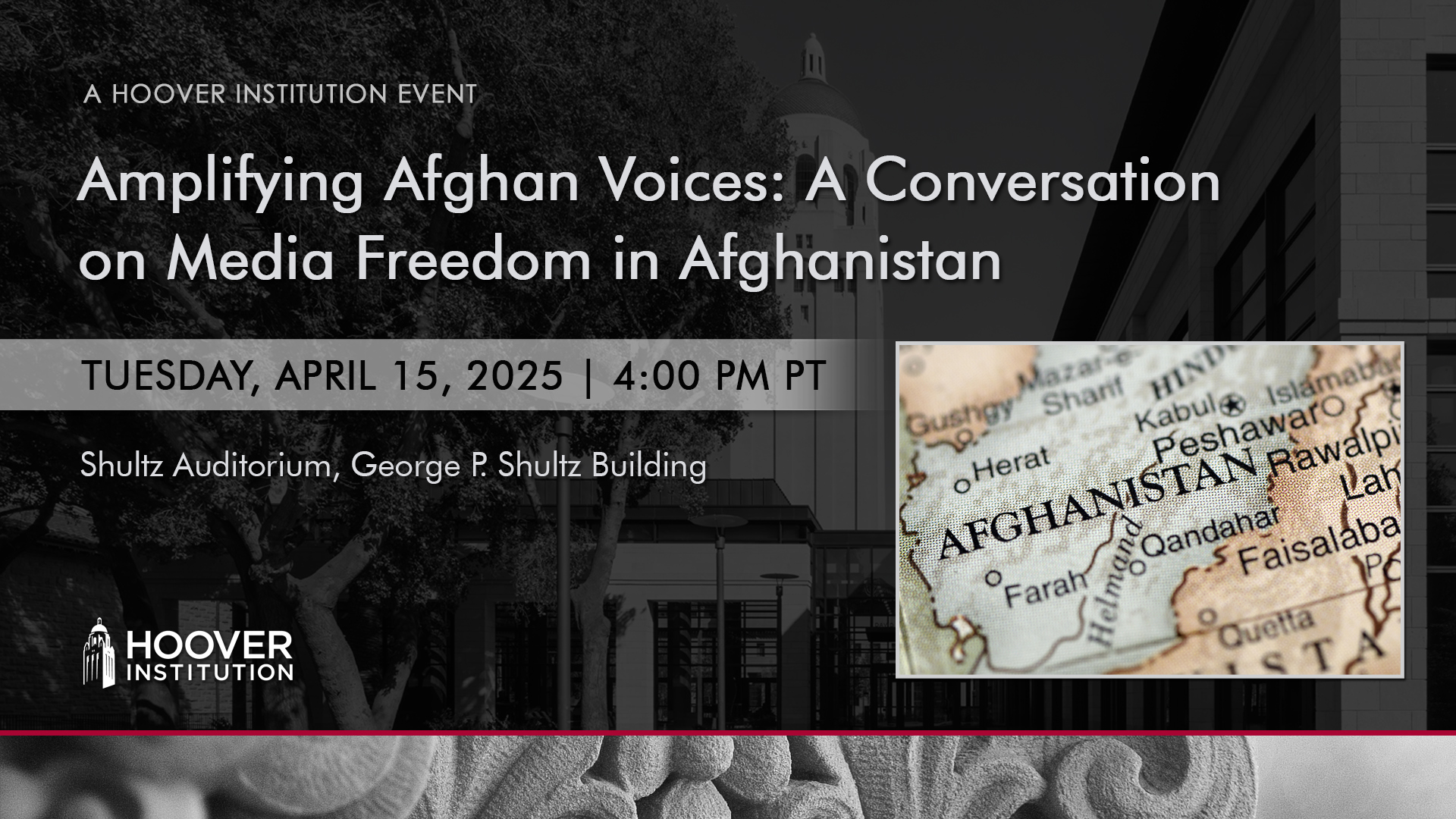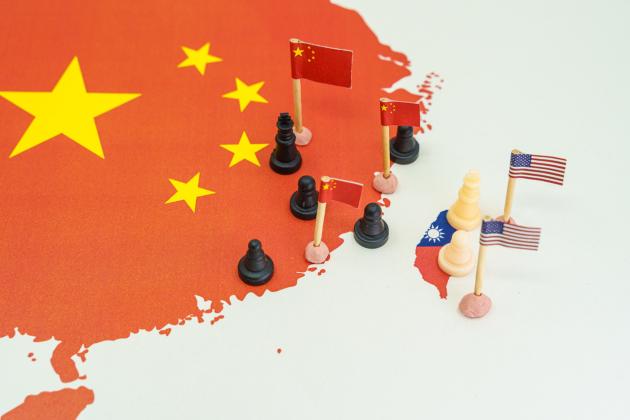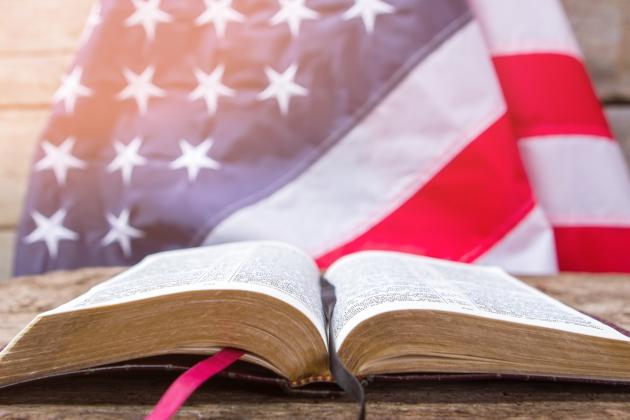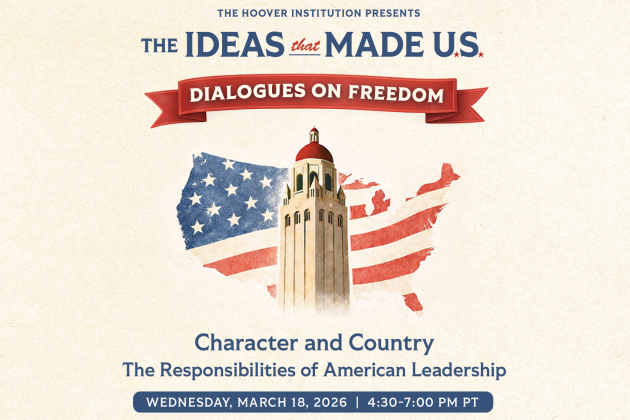The Hoover Institution held Amplifying Afghan Voices: A Conversation on Media Freedom in Afghanistan on Tuesday, April 15, 2025 from 4:00 p.m. - 5:30 p.m. PT in Shultz Auditorium.
The return of Taliban rule in Afghanistan has stifled the ability of journalists, human rights activists, and historians to advocate for human freedom and amplify Afghan voices. Panelists Parwiz Kawa, Director of 8AM Media, Dr. Halima Kazem, Oral Historian for the Hoover Afghanistan Research and Relief Team, and Nader Nadery, Hoover Visiting Fellow, join H.R. McMaster discussing the tragedy of Taliban rule and ideas about how those outside the country can understand the Afghan peoples’ experience and advocate for their freedom and security.
>> HR McMaster: Okay, welcome everybody. It's a real pleasure to have three of my heroes with me here on the stage and to provide us with insights into the situation in Afghanistan. The history of how we got to where we are in Afghanistan, if we want to talk about that.
And also what the prospects are for the future of a country that all of us care deeply about. Have I know many of you here in the audience, too, and the audience that's joining us remotely have connections to, through family and friends. Or those certainly in the United States who have served there.
And I know that all of us were heartbroken with the outcome of the war, the war that went from 2001 until August of 2021. And we have three people here to help us understand those kind of three aspects of the experience in Afghanistan of. How we got to where we are today and their personal experiences as well, and what the prospects are for the future.
And so I'll go from my left or from your left to right, I guess. Mr Parwiz Kawa is a founding member and the editor in chief of Hasht Subdali, the leading and largest independent newspaper in Afghanistan. And a winner of the International Press Freedom Prize from Reporters Without Borders in 2012.
He's worked courageously in local and national media outlets since 1998. I think the last time we saw each other was probably 2012 in Afghanistan, right in Kabul. He also serves as chairman of the Board of Directors at the Afghanistan New General Organization and advisor. And member of the Board of Directors of Afghanistan Journalist center and a founding member and the chairman of Afghanistan analysis and awareness.
A3 this is a civil movement organization and think tank. Mr Kawa holds a bachelor's in Law and Political Science from Kabul University and a bachelor's in Education from the Baghlan Teacher Training Center. He is also a poet and a novelist and has published two collections of his poetry, A Night from Exile and Two Guns Two Stones.
Dr. Halima Kazem. She's a star here at the at the Hoover Institution and at Stanford. She's the Associate Director of Stanford University's Program in Feminist, Gender and Sexuality Studies. She previously served as an oral historian and project manager for Stanford University's and Hoover's Afghanistan Research and Relief team, the Hart Team.
She holds a PhD in feminist studies from the University of California, Santa Cruz and a master's in business and Economic journalism from New York University. She spent 17 years as a journalist and filmmaker, including a decade reporting on Afghanistan's war and rebuilding efforts. Kazem worked as a human rights researcher for Human Rights Watch and Amnesty International, and as a journalism instructor for the Institute for War and Peace Reporting.
She is co producer of Frontrunner, a documentary chronicling the campaign of the first female presidential candidate in Afghanistan. Halima's forthcoming book, A Feminist History of Afghanistan, subtitles Resisting the Erasure of Women, unearths and narrates the little told feminist history of women's movements in Afghanistan. And next on the far right of the stage is my old friend Nader Nadery.
He's a senior fellow at the Wilson center, was, I guess I should say sadly at the Wilson center and a visiting fellow here at the Hoover Institution. In 2020, he was appointed as a member of Afghanistan's peace negotiation team for the peace talks in Doha. He also served as chairman of the Independent Civil Service Commission of Afghanistan.
Prior to joining the Commission, he was senior advisor to the Afghan President on strategic affairs and Human rights. Nadiri has also served as director of the Afghanistan Research and Evaluation Unit, a unit that I depend heavily on when I was in Afghanistan. Commissioner of the Afghan Independent Human Rights Commission and Director of Afghanistan Programs for Global Partners for Justice.
He is the founder of the Free and Fair Election foundation of Afghanistan, which observes elections, observed elections. I guess I should say now, and co founder of the Afghan Civil Society Forum, a foundation for civil society and culture. In 2002, he served as a spokesperson for the emergency lawyer jirga, or the grand assembly that elected the head of Afghanistan's transitional government.
Nadiri prior to that, it's not in your bio here, was imprisoned by the Taliban from 1996 to 2001. He courageously unearthed violations of human rights across Afghanistan's recent history from the Soviet occupation through the civil war to the brutal rule of the Taliban the first time. And then onward after the fall of the Taliban in 2001.
It's a study which I hope we'll talk more about, has been suppressed, but I think Hoover can work with you on making that accessible to people. Nadir studied law and political science at Kabul University in Afghanistan and earn his MA in International Relations from George Washington University. So it is fantastic to be with all of you.
Hey, I think what would be really tremendous for our audience here and for our audience that is dialed in remotely, is to hear your stories and maybe just go right down the line. Beginning with Parwees, your stories about your personal and your family's experience in this extraordinarily difficult period of time.
From the Soviet occupation to the civil war to the Taliban rule to the fall of the Taliban and the sustained terrorist and insurgency campaign that Afghans had to endure. And then obviously the heartbreaking fall of the Afghan government and the reestablishment of Taliban rule. I would love to hear from Parwees John, your story as an activist, a poet, a journalist and for Halima really that you know your experience as a journalist.
And then also as an oral historian and somebody's trying to understand the broad experience of the people and from Nadir obviously you've got insights into everything up to the I think the. The ill conceived US Taliban negotiations and you're one of the liaisons to that. So Parweez, would you begin please?
Your personal story.
>> Parwiz Kawa: Well, thank you so much, Mr McMaster, and I'm glad to be here with all of you and with all who are following us through Zoom Online. Well, it is a lot of ups and downs, of course, but I'll share those parts that might bring some sort of that.
That could be somehow educational and that could also, also help us to remember the, the parts of the story. Well, when Soviets came, I was a cat. I can say still at very beginning years of school and our it was fun for us to just to try to learn some words in Russian.
Just to be able to communicate with Soviet soldiers because they were bringing lots of stuff for sale. They were stealing stuff from their bases and camps and bringing it to the cities. And we are trying to negotiate between them or maybe mediate between them, selling that. And somebody who know Afghanistan is quite good at that.
Well, I speak four languages, the languages that are spoken in that region. Well, that was the beginning, of course, it came with a lot of bombing, a lot of rockets, a lot of wars. I witnessed people kill in front of me, including my teachers. I remember many sad stories of those eras, including one blast that happened right behind our home and that broke all windows.
And my mother was so trying to save us and put a ladder and help us to cross the wall and go to our neighbor's house, I believe, right? No, it was in Kapiso province. Well, on that time, we were living in Jebelsrai district, which was part of Parwan Province to the north of Afghanistan.
But one of the largest bases of Russian Soviet soldiers were there in Parwan, including the Bagram Air base on those days. So, yeah, then we were actually one day informed that Soviets were leaving the country and were still in school to do. Were trying to take us to the roadside, just line up and say goodbye to Russian tanks.
So that was something we were forced to do because we were studying in schools where the ideology was running the whole educational system. We went there on the road, and luckily by the time we were there, the soldiers or the Soviet troops had already left. They said, okay, so we need to walk back to the school.
Then we had these mujahideen coming to power. And during that time, of course, I was getting ready to get into the highest school. And later on, it came to the Taliban, to the civil war, of course, and then to the first era of the Taliban, when for the first time.
I just had to leave the country and reside in Pakistan for a while and wait there until counting down the days to return back home. And in 2021, when, after 9, 11 and after the invasion of, I mean, Western troops in Kabul so we could return back. And since then, of course, with other friends like Nader.
Nadery was one of the founding fathers of Hashtus. So when we established that, so we were talking and seeing what we can do. So at one point we thought, an independent newspaper is missing in this country because there are a lot of things to say and a lot of missions.
We have a lot of responsibilities we have as individuals, and we have to transform that into something to make it beneficial to others too. And on that time, of course we thought a newspaper is needed which can enlighten people. And it took of course some times in 2007 we established hashtag soap daily newspaper through the support of a group of journalists.
And civil society activists and human rights activists, including Nader Naderi, our friend and some others. And then it was a new journey for all of us. The newspaper came with a lot of responsibilities. We had to fight with corruption, we had to fight with. We had to fight for a good governance in Afghanistan.
We had to fight for accountability and of course we got inspirations from friends. When you are in Kabul, of course you were working for Shafa Fiat, which was an anti corruption unit within ISOF on those days. So we're seeing that whatever we do to investigate and maybe name and shame people who are involved in corruption, somebody reads it.
Somebody listens to this and somebody takes action within the government, within the international community. And that helped us and that made this commitment more stronger in ourselves to continue in this path. And that continued up to 2021 and then collapse happened. Of course that was a nightmare for all of us.
On those days I was in Turkey, Ankara, trying to planned my trip to Kabul because normally from this part of the world. When you travel to that part of the world, you have to have a layover somewhere. And when I got the news that Taliban are inside the city and then we had to focus on evacuating our staff.
Closing the office and re establishing ourselves and transforming ourselves into a news, a news source. Of course we couldn't continue to print the newspaper because we're not operating in Afghanistan anymore. But we tried to shift it into something else. An online news platform with multi sort of some other products added to that like multimedia journalism.
Citizen journalism and more of online presence and using of social media platforms just to reach the people because our website got blocked by the Taliban. So we had to mirror all the contents into a new website and introduce it back to the people. And now we are here.
And this the long story, of course it has a lot to learn from, it has a lot to to talk about. And I think one of the biggest achievements we had, and that's from 2001 to 2021 was this independent media that still we have that that's the only survival of this situation.
We lost our parliament and other the whole structure of the government. But the only thing that we can say that is still there is this independent media, some of them operating from outside, including soap or ATM media.
>> HR McMaster: So Halima John you were you were obviously a reporter in this period of time as well, especially the latter period.
You also were a documentarian. And so I could you share from your perspective what you how you understand that broad sweep of experience and really how you interacted with these various phases of Afghanistan's recent history.
>> Dr. Halima Kazem: Thank you, General McMaster. I was born in Afghanistan, but I. I was raised here in the United States and went to school and university, but I was able to return after 9, 11.
And I was actually recruited to establish the first presidential media office for President Karzai under the emergency interim, interm? Interim government. Interim government, that is where I first met Nader jan. So we were both a lot younger 23 years ago, I think it was. And so that was an interesting experience to arrive in a country that had been so disconnected from the world.
To make a long distance call or send a fax, we had to drive down to Pakistan to do some of that. To connect to the Internet, we had to connect to the satellite phone to dial up onto a laptop. And we're talking 2003, 2002, when I arrived a few months after the Taliban.
So setting up a media office in that way wasn't what I was thinking when I was in New York. But that was a challenge for the emergency Loya Jirga. We were using bulletin boards to communicate with the thousands of journalists who had embarked on Kabul for the first gathering, the Loya Jirga, the assembly.
So that was a really immediately rude awakening to what the landscape looked like at that time. And then over the years, my biggest privilege was I worked with the government for a couple months and realized as a journalist, that's not my place, but it was my biggest privilege to work with news organizations and build the capacity of the Afghan journalists.
I think I trained over 400, 500 journalists over the years. And I think one of the biggest accomplishments was establishing Pajhwok Afghan News Agency, which was the first independent news agency in Afghanistan. And we had established bureaus all over the country. That was very exciting, that was 2004, 2005.
So I have a slide, and I wanted to show this slide, and this is from Reporters Without Borders, RSF, and it's on Press Freedom Index. And I plotted the different years to show you the volatility in press freedom from 2002 to 2024. So the higher the point on the chart, the, the more free the country was when it came to press freedom.
So if we look at the top in 2002, the clean slate, we're probably at the best point in media freedom because everything was starting out and then you can see the points dipping. And when the Taliban regroups in 2006 and seven, you see press freedom dropping. And then you see more development in the ANA and security sector, then you see media freedom.
So you see the changes, the, the peaks and valleys, and it follows the political cycle. And at the end, I'll leave this up for a few minutes. At the end, you will see the lowest point to 2025 and how far we dropped from 2021 to 2025. We are now 178 out of 180 countries as far as press freedom.
So basically two from the bottom. And that is this just captures a little bit of the volatility that has, that has occurred in the last 20 years. And to me, this chart means a lot because I think when I lay it over political developments, when I lay it over regional developments and then global trends towards authoritarian regimes and in the politics that follow, we can see those, those changes in press freedom in Afghanistan.
And so I can talk a little bit more as we go into the information gap and media gap, but I would want to hear Nader jan's personal story before we do that because it also ties in with the work that I do with oral histories. And his interview is in the Hoover Afghanistan Oral History Archive, and so Nadir jan?
>> HR McMaster: No, that's perfect, cuz what I think we'll do is we'll hear from Nader on his experience and how we got to where we are today. Then what I wanna do is have all of you talk about what you're doing now, given the terrible situation in Afghanistan, but Nader?
>> Nader Nadery: Thank you so much, HR, so wonderful to be with you, and also with Dr. Kaza and Kazem and the rest of you. Probably I begin picking from the point when both of you started about the Soviet coming and the environment there. Something that is inscribed almost in my psyche is that moment when my dad started digging a hole in the yard and burying the books.
So I was probably two or three years old, but that stayed with me throughout my life. The jets, the Russian jets were flying over. My mom was very, very much scared and concerned and was helping my dad. My dad was burying his books because those books, because he was an elder.
A land owner-
>> HR McMaster: An incredibly impressive man who I had the great honor of meeting, absolutely.
>> Nader Nadery: Thank you, and so he was afraid of the knowledge that he had and the wealth of that knowledge through those books that was not related to the Russians. And that was the first spark of how suppression and unilateral way of thinking on the issues could look like and how it is horrible.
And then fast forward in 2001 when the Taliban toppled. Throughout these two decades, the books were mostly banned or was so limited. The publishing house was gone, printing presses were gone. The war then destroyed the rest of it. In 2001 and beginning of 2002, as we heard from Parwiz and from Dr. Kazem, there was a spike in the level of access to information and the books everywhere, number of publishing houses and all of that.
And the growth of civil society and free press to 2021, it was 1,800 print papers across the country in different regions, hundreds of radio stations and tens of televisions across. And the books was one of the pride of the students and everybody else on the street, and the bookstores returned.
But again, my own books, September 2001, two weeks after the the Taliban took over Kabul, I had to do the same thing, but from distance, because my house was subject to being searched. So I had to ask a friend. To collect all my notebooks and all the books, put them in big iron boxes and take them to somewhere else so that they could be saved.
And especially my notebooks, which are part. Of the history
>> HR McMaster: 2021.
>> Nader Nadery: 2021 after the collapse of the government and the Taliban's return. So through all of this time we have seen how freedom of expression, access to knowledge of being affected significantly. If I may, between 2001 and 2021.
There's one illustration that I have it in my book and I may read. That part of
>> HR McMaster: Nader's working on a book which I've just skimmed through, I saw it for the first time today. It's going to be fantastic. And it's a personal perspective on what's happened. It's elegantly written, but please share part of it, would you?
>> Nader Nadery: Well, thank you. It's part of a chapter called Loud Envoy and a Silent Republic, and I begin each chapter with a story and a story to take it out of just dry historical narrative. It is historical.
>> HR McMaster: Well, you know, we have another author in the audience, Zachary Short, who writes that way too.
>> Nader Nadery: I look forward-
>> HR McMaster: And I envy both of you for your ability to grab a reader, but go ahead.
>> Nader Nadery: Yeah, I look forward to learning from him. So I start from that paragraph. As we neared Hewa, a district in the east of the country, I spotted a group of young and old resting farmers in a grain field.
They sat on the ground, their faces weathered yet serene, sipping tea during a break from their labor. Tea is an essential thread in the fabric of Afghan life. Ubiquitous elixir, the suits, and revives, particularly under the blessing summer sun. Heat beats heat, the saying goes, favoring warmth over ice, cold relief.
Curious, I asked my colleagues if we could pause our journey when we walked over the elder among them, a man in his 70s with a flowing white beard and a neatly wound turban, greeted us warmly and invited us to join them. He handed me a steamed cup of green tea and a small piece of gourd, the rich and refined sugar candy made from sugar cane.
As we settled, I noticed a small radio on the ground playing a lively talk show from Radio 3 Afghanistan, a station out of Prague, founded by the United States in 1950. And it is programmed for Afghanistan began 2001. Unfortunately, that station has also been shut down last month.
That Radio Free Europe, which was funded by US is now closed by the United States. Callers jammed in with their views, the farmers soon resumed their animated conversation, discussing the upcoming harvest and the careful planning required for water distribution across their fields. Without modern mechanized irrigation system, Afghan farmers and landowners have long relied on traditional community driven practices.
These are overseen by a seasoned elder known as Merab, chosen by the community for his expertise and moral authority to ensure fair and efficient allocation of this vital resource, a tradition of community governance and local wisdom. I turned to the elder, whose name I soon learned was Hayat Gul Khan, and asked kaka, what do you think has been the best change in life in this district these last few years compared to the past?
From where we sat, I could see newly built government offices and a freshly paved road that had dramatically shortened the travel time to Jalalabad city. I expected he made point these visible improvements first, instead his gaze brightened as he gestured toward the modest review beside him. At first, I didn't grasp his meaning.
Sensing my confusion, he elaborated, his tone firm yet tinged with wonder. Of all these changes, the most valuable is freedom to speak openly about powerful people. He described how not long, not so long ago one could only whisper criticism of local wallords or district officials, fears of reprisal stifling any dissent.
Now, he said with quiet pride, people and journalists criticized Padshah, the ruler, ministers, and governors without fear. He tapped on the radio gently, his smiles widening. This gave us a way to air our frustration about the government and hold them to account. So that's an elder man of 70 in a very remote part of the country from all development.
What he cherished was the freedom of expression, the free press, which unfortunately, as you see in the slide, is no more there the way it was. And that also indicates that how quickly some of the gains we have made, not only in Afghanistan, anywhere else, could be retracted and could slide back.
And just a final word which breaks my heart to share also. Last week when the Wilson Center, a place for creating knowledge and information, was shut down and people, staff who worked and my colleagues who have worked for very long time there, they begin whispering, whispering about further retaliation against them, that they may lose certain benefits if they speak up.
And that broke my heart because I I never imagined that this could happen in the United States. That event, that town hall reminded me of August 11, 2021 in Kabul when I gathered around 800 of my staff from Civil Service Commission, they were feared, scared and very nervous about what was coming up.
As their colleague and head of the office, it was my responsibility to tell them to calm them a little bit, but to not keep information from them, but also not to bring panic in them. So I had to bring a level of ease in them, and explaining what's coming, and what would enable them to continue that fight.
That day in Washington and that whisper, and that town hall painfully reminded me of that day. And I said, freedoms that we have anywhere are precious, but they are vulnerable and needed to be protected here or anywhere else.
>> HR McMaster: Great. Hey, what I'd like to do is just do this more conversationally.
So, really what I want to do is take us to the present now, right? All of you have played a very important role in making sure that the Afghan people can maintain their voice, have a voice, despite the repression of the Taliban regime. And all of you are doing it in different ways.
And I thought maybe you might just talk about your ongoing efforts now, that despite the stifling of human freedom and the stifling of freedom of the press and freedom of speech in Afghanistan, what can be done despite that terrible situation. Or do you want to start first?
>> Parwiz Kawa: Yeah.
>> HR McMaster: Well, then jump in, everybody.
>> Parwiz Kawa: Well, I think the least we can do is just to keep the story of Afghanistan and Afghans under the Taliban alive, is to help them to share their stories and publish their stories as much as we can. There are a lot of human rights violences, and we have the stories from.
One of the stories that actually so jointly worked with New York Times won an Emmy Award. Of course, winning an Emmy Award is quite fascinating and helps us encourages to continue. But more important is the stories of those who are stuck behind and who are tortured every day, especially those human rights activists, journalists, former security officials or officers, soldiers, I can say.
So what we do as a newspaper, I mean, formerly newspaper, where we could print and now as an online newspaper, is to bring stories of Afghanistan to the world, to inform what's going on inside Afghanistan, a country that was supported for 20 years by the United States, by international community.
And we got a lot of things, positive things there. I mean we built institutions, we experienced elections and democracy, and we had an enormous number of civil society organizations and media institutions. And that was all byproduct of the United States and the Western world. And now those who work in these sectors in the past are the most vulnerable ones because they are targeted by the Taliban every day, and they are hiding and traveling from one province to other province just to hide themselves, just to lose the track of themselves.
So this is the situation. What we do as a newspaper is to continue reporting from inside the country. That's why we have a network of committed and determined journalists inside the country, including female reporters who are bringing those reports to us. And we have a group of editors who are mainly outside the country, and they process those materials and turn it into a newspaper stories, and we publish that.
I think that this is-
>> HR McMaster: Our audience, just basically how do you access the website, the ADM website, and how do they get to it?
>> Parwiz Kawa: Well, in the past, we had this very short domain name, which was easy to remember for everyone, and still it's not that difficult.
It was 8am.AF. You were operating based on Afghanistan domain, which is .AF. But once the Taliban came in, they halted the website. So they banned access of people to our website. So that website is not accessible anymore, even for us. But we had this in mind, that one day they might come after the website because this AF domain is under their control.
So we were mirroring the contents of the newspaper into a new website like 8am media. So we registered this media domain just to be prepared. And we did, I mean, did it right after almost, I mean nearly one year, the Taliban came and closed our website. But we could just inform the people that, okay, website is closed, but this is the platform that you can still continue accessing ATM media, including the whole archive and the whole history, I mean history of the contents we have.
So we didn't lose anything, but we had to inform people to come and just shift from 8am AF to 8am Media. And plus we, of course this website, 8am Media, is still banned in some parts of the country. Some telecommunication companies felt harassed, and that's why we tried to use social media because those are giant companies.
By the time the Taliban decided to ban Facebook, that would be a new war. Not with us as journalists, but with Meta, a big company in the United States. So we thought that would be difficult for them to go to that war. That's why we established, I mean, we invested more on our social media platforms.
Facebook, Twitter or X, Instagram, Telegram, whatever platform is there. We just wanted to be present and, help people to access our information through those platforms. So this is the situation now. We have a group of combat generals inside of Hanniston and we have a, I mean a, a group of platforms.
I can say that we process those information and give it back to the people. Plus we have the people themselves helping us. We have this citizen journalism, I mean, scheme where we train people or we advise them how to film something or how to report something that happens in their communities.
They send it to us. We do our own fact checking and processing parse, and we republish that. You tell their story, for instance, a story happens in Kabul. We just want to make sure someone in Mazara Sharif or Herat knows what happened in Kabul, and that comes to the citizens themselves.
This is one of these stories.
>> HR McMaster: Well, I think it's just brilliant because what you're doing is you're getting information out so that we can really continue to give the Afghan people a voice and understand their experience. But you're also getting information back in, around the firewalls and informing people, and I think it's just fantastic work and I really appreciate what you're doing.
Halimbu, do you want to talk about your maybe the oral history project, or really whatever you want to talk about in terms of actually doing today?
>> Dr. Halima Kazem: Actually, maybe I start with a little bit of context to explain why 8AM is the diaspora media is so important. So as we talked earlier, Afghanistan ranks 178 out of 180 in RSF's Press Freedom Index.
Since 2021, 40% of media outlets have been shut down and over 80% of women journalists lost their jobs. The Taliban have taken specific measures to dismantle Afghanistan's once vibrant independent media sector, of which Ashtesog was a very big part of. Just to walk through quickly some of the things that they've done to tighten the, to, to basically dismantle the media landscape is September 2021, very almost right away, a month after they issued media content restrictions.
So immediately banning entertainment programs, prohibiting content deemed contrary to Islamic values or critical of the regime, which becomes very subjective here. They also banned foreign media and entertainment, a lot of foreign films, like Turkish films and Indian films. So again, slowly narrowing down. And then what was a very big move was in September 2021, a code of conduct for journalists prohibiting the broadcast of material that contradicts Islamic values, barring reporting that could be perceived as insulting national figures, Taliban leaders or harming national unity.
So just walking through some of these to just paint the picture for you, arbitrary arrests and intimidation of journalists, going into newsrooms and threatening closure or raids of newsrooms, bans on female journalists and broadcasters, closure of media outlets, hundreds of media outlets were closed. And then something that's very important right now is the use of the Taliban, the use of social media by the Taliban for their propaganda.
So that's why diaspora and diaspora media on social media online is so important because it counters that narrative, that process propaganda that the Taliban are using. My assessment from, you know, working in media space is that they will never shut down the Internet. That is their means of recruitment, of outreach and propaganda.
So there becomes this dire need for diaspora media to counter these narratives. The Taliban use X Telegram, WhatsApp to spread propaganda and monitor dissent. They use tactics like online harassment, doxing, which is using personal information of people, especially women, to silence them, especially journalists, arresting people over their posts and co-opting and silencing influencers.
So really just to point this out is that since 2021, the Taliban media strategy has been shifting from insurgent media activity, which is the environment we were all working in under the Republic, because the Taliban still had a social media presence, but they were insurgent media activity. There weren't this organized media strategy.
But now that has turned into their shifting from insurgent media activity to a government controlled media landscape. And so we can see that they're even broadcasting in the previous slide in Arabic for rta, for Radio Television Afghanistan, which was not the case. They were broadcasting just in the national languages.
These are appealing to insurgents who are Arabic speaking insurgents who are in country from different places. So looking at those as indicators of who their audience is thinking about that.
>> HR McMaster: And there's a recent UN report, I think it was something like 22 separate terrorist training bases now with it within Afghanistan and I think almost like one in every province.
So yeah, I mean, and obviously that's the audience probably for this, for this Arabic.
>> Dr. Halima Kazem: Yes.
>> HR McMaster: Taliban media platform. Thank you.
>> Nader Nadery: On what's happening currently, to add to what Dr. Halima and Parisian said, a massive amount of human rights violation, apart from what is well documented.
Because it's measurable easily to a baseline of the freedom of media especially. But massively along with the violation of women rights, which I and many other human people in the human rights community and lawyers now describe it as a gender apartheid. That means all the three key element of an apartheid regime is applied to the maximum level on Afghan women.
But apart from that, there's a large list of other human rights violations that are systematically being imposed and carried out by the regime. So there are torture in a large scale happening in a lot of detention facilities run by the Taliban. There is a significant number of people arbitrary, arrested, put in detention facility without right to due process.
There are no courts for them to be presented to. That includes human rights activists, civil society activists, and political actors too. On the political right to political activities, which was a fundamental right under the previous constitution, the Taliban have abolished the entire registry of political parties, law and political party registry with the Ministry of Justice.
And announced completely illegal any activities of political nature, political parties are also being banned. On top of all of that, economic and cultural rights are massively and systematically being undermined and violated. The citizens are not allowed to practice or to enjoy culture engagements. For example, there are no music anymore allowed.
Music is completely banned. Exhibitions of art that depicts human face or women voices, that women voices, art of any nature, all of that is being banned. So and then education as part of fundamental cultural right that is enshrined in the UN Convention on social and cultural Rights is also completely violated.
On top of that, the Amir, the Taliban Amir at the Eid sermon said, God have created poor and rich. So those of you who are poor must accept that position because that is the will of the God and you can't do anything about it. And that is because the poverty is increasing day by day and a large number of population were and are dependent on international aid.
And as the international aid goes down, so poverty increases. And people's demand for food is more. And therefore to calm them down, he says you, you need to accept what God has made you. And there's nowhere in, in Quran that would say that. It's the opposite to say you have to step up, you have to take your destiny in your hand and once you move, God would replicate your efforts, reward to your efforts.
>> HR McMaster: But if you want passivity, absolutely, that's how you interpret.
>> Nader Nadery: But then something that makes me optimistic is not like that there some of the fightings that are happening here and there, military resistance, but more of the social resistance. Knowing that what Afghan women have been doing in the past 3.5 years, so courageously being on the street time and again and finding other creative methods to fight back.
But along with that, an increasing number of young Afghans who are creating different methods of resistance and building for a future, a future that they could. Their resistance may take 5 years, 10 years. But the decision that they're committed to go through a longer term process to build up a bottom up pressure.
Where that bottom up pressure creates a massive number of individuals connected through a created social capital that they could challenge the Taliban's repressive authority within that. Especially when I talk to a lot of them, they are aware of this changing in the global discourse around the international norms and the lack of visibility on human rights issues.
On freedom of expression, on democratic values in major power competition that's happening globally. These dialogues are missing and they're noticing it. Some of them are disappointed with that. And events like this gives them a point of reference that it's not entirely omitted from international foreign policy discourses and international thinking there.
But one additional element is documentation of the past human rights, the current human rights abuses and the current human rights abuses. Documentation is so fundamental because when we did last time that 23 years of documentation of human rights abuses took us three years and a lot of work have gone to it.
That report that you have referred to hr, but a lot of firsthand eyewitnesses did not exist anymore. And collecting and building a credible historical record of what has happened, but also human rights violation record, what has happened would require a lot of rigorous work. And these documentation and organizations of civil society that are currently doing those human rights documentation is building the right kind of foundation for future possible accountability and justice to the Taliban and their other foreign fighters and terrorist groups that are operating there with them together.
>> HR McMaster: Okay, so sadly we're getting close on time and I do want to take some questions from the audience. So here's what we're going to do. I want to ask, actually, each of you just to talk quickly about what more you're doing. Nairo, you may have already talked about this to kind of restore agency to the to the Afghan people.
And while they're summarizing what they're doing and what some of their initiatives are today, think about what questions you have. And if it's okay with you, we'll take three questions in succession. They've got to be short and really big questions. And then we'll ask you to address whatever or all the questions that come your way.
All right, so, Halima, jump in, and then Parweez, you go next. Yeah, what you're doing to Restore Agency or whatever you want to talk about.
>> Dr. Halima Kazem: Thank you, General McMaster. So this, what we're doing right now at Hoover, and really because of the work that General McMaster and Chelsea put in place before I even got here.
Was the Hoover Afghanistan Research and Relief Team Oral History Archive. The reason why I stopped teaching to come to do the archive was because this kind of archive was what I wanted growing up in the United States of my parents generation. In order to dig into that archive and be able to write and research, and it didn't exist.
And for General McMaster to have the foresight to, as a historian and as someone who had served in Afghanistan, to be able to come up with this project was. Was amazing for me, and I thank you for that because that's the work that allowed me to do the work on the Hoover Afghanistan Oral History Archive.
And basically, for the last two and a half years, I've been flying everywhere, interviewing, doing oral history interviews. Shortest one 90 minutes, longest one 10 and a half hours. Over three, three, four parts, over zoom, in person and documenting. We have almost 500 hours of recordings, most of them 90% with video, to capture the emotion and the expressions.
It's an archive of affect, I call it, because it's an archive of emotion. And as we heard with the two stories here, and even my own, it's an archive of emotions, of uncertainty, of displacement, of resilience, of a lot of things, of the human condition. And so we have government officials, military generals, fighter pilots, parliamentarians, activists, journalists, educators, students, diplomats, business owners.
We have about 10, 15% of the archive are Americans, and they're US generals, just like General McMaster. We still have to do your interview for the archive. Aid workers, researchers, security personnel, diplomats, all telling the various parts of a larger narrative. We also did, knowing that the conditions inside Afghanistan to capture were very important, we did a subset of 40 interviews inside Afghanistan, which captures certain moments and tells the story.
So I traveled to Turkey, Qatar, Dubai, Abu Dhabi, London, all over the US to record these interviews. And I think that when the archive is launched this summer, it's going to give. It's going to be a very rich place for people to come and not just study the politics, but study all of the different aspects of Avon's lives and especially the period of the Republic.
And so what is the benefit of having oral histories? It's knowledge production. So it's something we've been talking about here. It's countering official histories. Oral histories allow individuals to be inserted into. Into histories where oftentimes it's been a documentation that has been physical documentation. So it creates space for individuals like our friends here, to be part of historical memory.
And it creates and transmits meaning from memory, which is very important here. It evokes new ways of hearing and imagines the future on understandings of the past. And that's what the archive will do. But at the same time, that's what human rights documentation does, and that's what diaspora media do in this context.
So that's something that I'm working on right now.
>> HR McMaster: Great, thank you so much, Boris John.
>> Parwiz Kawa: Well, I think what we need to do and what we are currently doing is to avoid Afghanistan becoming a black hole of information. So information is there. There are a lot of things happening, and we need to report on that.
And when it comes to commitment, of course, we know that when you have Afghans, they can report on Afghans and Afghanistan the best. That's why we have to keep training the new generation of reporters. Mr Karimi is here who's been involved in supporting the independent media and especially the studies and trainings of that.
Maria Jennis here. So she has been always supporting the female reporting, female journalism in Afghanistan. And still, she's quite supportive of the whole process of keeping the Afghan female reporters, I mean, working in this sector. Of course, when you work in the regular newsroom in Afghanistan, inside Afghanistan under the control of the Taliban, you cannot do much.
But when you work in a secret way, it's like, I mean, hit and run. So you drive a story and run and reach your safety and report it and file it to your newsroom somewhere else. In our case in exile, that's, I mean, the stories that we have to bring from Afghanistan and we have to tell it to people.
So that, I mean, this contributes to the mission of, to, I mean, our major mission to avoid Afghanistan becoming a black hole of information.
>> HR McMaster: Right, well, I'll tell you, Nader, I think we're just gonna go right to questions. That's okay with you. But as we transition to questions, how about just like one round of applause now for these three courageous, fantastic people.
>> HR McMaster: And then thank you so much for these really moving, informative, insights into your own experience, what you're doing now, and efforts to restore agency to the Afghan people. So what I'd like to do is open it up for questions. You just raise your hand. We can bring a microphone to you, gentlemen, here, and we could take three in a row if we want to do that, because we're gonna be compressed.
So we gotta get more questions than that. So come up with them. Grace, somebody has got to go with a question. Okay, sorry, go ahead.
>> Speaker 5: So, I also call myself like, civil servant in Afghanistan. I used to work at a lot of like, organizations and we used to have a lot of events.
So given the severe restrictions on media and social society and their Taliban rule. What are the most effective ways for those of us outside Afghanistan to support Afghan journalists, historians, volunteers, and activists? I would say in preserving the truth and amplifying their voices without putting them at further risk.
This, I think goes for everyone in the panel because I used to work for TEDx Kabul, and we had a lot of events to organize, but we couldn't after the Taliban took over. And same thing with Code Weekend. I was the founding member of Code Weekend, and after the Taliban took over, we couldn't do any events.
So that's my question for everyone.
>> HR McMaster: Great question, thank you so much. We'll go to Grace and then, and then we'll go to this. We'll take four. How about that? We'll go, and so we'll know where the microphones are going next, okay, great. Go ahead, Grace.
>> Grace: Hi, everyone.
Thank you so much for coming and for sharing about the amazing work that you all are doing. I'm Grace. I'm a freshman here. My question is, what do you think is the biggest misconception about Afghanistan? What is it that we don't see in the mainstream media? What is it that we get wrong?
Especially like me and other college students, people my age, what do we not know that's really important, critical that we should know, thank you.
>> HR McMaster: Thank you, Grace, who's an oral historian in her own right and has helped with a lot of curating a lot of our histories.
We'll go to the gentleman here on the right and then to the lady in the back so.
>> Speaker 7: Thank you for being here today. From my experience when I was in Afghanistan was that electronic media, radio and tv, played an outsized role in getting information to the remote villages.
And obviously that's changed dramatically. So I'm kind of curious, similar to the comments here. But what can the diaspora community do to really ensure that some semblance of information is still getting through, using the formats to deal with the illiteracy in Afghanistan, thank you.
>> HR McMaster: Great, thank you.
>> Speaker 8: Hi, yes, thank you so much for speaking with us today. My question is primarily directed at Dr. Halima, since you mentioned how the Internet has, particularly X Telegram, WhatsApp has become a source of propaganda and recruitment. And how even the fact that messages are being transmitted in Arabic kind of signals a shift in the audience.
So I was wondering if you could talk a little bit more about this shift and particularly whether or not a lot of this messaging is internally focused, that is, towards Afghanis. Or if there's some signaling happening to both the other states in the region, or even the international community as a whole.
>> HR McMaster: Okay, hey, great questions. All right, so just quickly to help you out here because I'm over 60, man. I know, I took notes. So the first is what can we do to support those greatest Afghans within Afghanistan without them incurring further risk? What is the greatest misconception about Afghanistan, radio, and TV?
What can the diaspora, others of us, do to get around the firewall to reach the audiences inside? And then social media and the shift in messaging, what does this portend? And what's your analysis of it? Okay, so take all of them. Some of them just jump in and yeah,
>> Nader Nadery: two of them probably. On the question of misconceptions, there's a lot of misconceptions about Afghanistan, but I would point to about Afghan and Afghanistan on two of them. One, that there's a lot of people, when they talk about human rights and women rights in Afghanistan, they say, well, these are Western ideas that came from west to there.
And it doesn't have roots in majority of Afghan ruler communities. And these are few in Kabul who knew about it. And they were advocating for it. And the rest of it, the rest of the country didn't know. And this is a very clear misconception. In 2004, I have run a nationwide survey and a study of concepts of human rights and how people understand the very notion of human rights there.
They didn't know about the conventions, they didn't know about the International Declaration of Human Rights, but they knew what That respecting human dignity was access to education and the right to go to school was so fundamentally and clearly known to them. In Afghanistan in 1960s, there were women sitting in the cabinet and the first queen, like in 1920s, Dr Seb can speak more as the theme of her book Afghan female were going abroad for studies.
So the misconception that what the Taliban are trying to impose on Afghans or establishes rule is what Afghan society wants is an absolute misconception that there's no reality in Afghan society. The second one, of course, the story I told or read from the book of Hayat Gul Khan, he didn't know it's 70s.
He didn't know of the Article 19 of Universal Declaration of Human Rights. But like any human being anywhere else, Afghans also love anything that's beautiful, anything that is good for human beings. And Ayat Gul Khan was very clear example of that set of values and thinking. He didn't know of Article 19, but he knew freedom of press was so fundamental to him feeling good about holding governments accountable.
A second misconception is that Afghan society is so traditional, it doesn't have. It was never ruled by a government and it doesn't know democracy. And all of those three are completely wrong. Governments were there central governments and functioning governments for centuries. The government bureaucracies were from the time when Afghanistan had an empire and was having under control number of countries around it.
Democracy in a traditional sense. This practice of jirga's community organization form of governance where everybody sits around in a circle in the south it's called jirga. In the north of the country it's called khaumikucha, the tribe of the street. And whatever political or social decision they want to make, they want to make it come collectively together.
And one of the most successful democratic elections out of fraud that happened in the past 20 years was the 2002 emergency Lloyd election. Which combined both the traditional practice and the modern voting in two phases. So that's also a very clear misconception. It's rooted in that society. It just needed to be looked at in an Afghan way, not purely and defined some sort of orientalist look to them.
>> Parwiz Kawa: Coming to that concern, which general concern for all of us, how to protect the human rights defenders and journalists inside the country. So in last three years or more than two years, we have seen that whenever a human rights defender or activist or a women's rights activist is arrested or a journalist is put in prison.
And we talk more about that, that somehow safeguards them because we know that Taliban are still afraid of the free media, those who are operating from outside. Because they know that these reports published by media in diaspora might reflect or might shape the human rights reports either by the United nations or country reports by different countries.
And that's why they are trying to avoid or maybe release the person who's in prison. This is the thing, what we can do as reporters to tell their story, to keep reporting from inside the country, especially those who are tortured or arrested by the Taliban. And I think this is the major responsibility of us as media in exile, I can call it.
We have of course some TVs, radios operating inside the country. They bring a lot of stories to the people. But those critical stories that needs to be discussed and needs to be brought to the people. That that's missing human rights violation, gender apartheid or the situation of women inside the country, I mean democracy or values, freedom of speech.
You cannot question where the leader of the Taliban is. You're not allowed to question any of the Taliban leaders. So these are the things that we want to talk about that. And I think this is, we need to keep the balance between those media outlets operating inside the country and those who are outside.
There are things they can say and there are things we can say and we might be somehow supporting the, supporting each other. The vital, the presence of the media in exile is vital I can say, because this is how we keep people outside the outside Afghanistan informed. The situation of human rights violations, massive human rights violations that's happening in the country now.
>> HR McMaster: Thank you so much.
>> Nader Nadery: Can I quickly add to something like making a campaign for Ashtitsoba and other media here and the Afran diaspora community could do one fundamental help to bring or keep alive the voice. And that is do take subscription for media outlets like Ash, Sobor, Adas and if they are not, if they are freely available, make donations, whatever.
Because they're struggling these days with the international development aid being cut off and the media in diaspora who were dependent partially to the international aid is struggling. So if a large community of Afghan diaspora in US and Europe and other places, each of them either make small donation annually or get subscription, it will keep them going.
And that is, it's not harming anything, but it's giving voice to Afghan's inside, but also getting, as HR said before, the information out of Afghanistan. So just
>> HR McMaster: great.
>> Dr. Halima Kazem: Right, in the defunding of the National Endowment for Democracy for usip, all of those organizations fund. I don't know, I think Ash.
So do you get Ned funding?
>> HR McMaster: We do.
>> Dr. Halima Kazem: Yeah, and so by cutting that off, we're cutting off information pathways for a lot of Afghans to get.
>> HR McMaster: And just a quick comment and then really, I want you to have the last word. I think that your response in terms of the misconception about Afghanistan that Afghans really don't want human rights and democracy.
It's got to be compatible with their culture industry, which is ridiculous, obviously. I think that misperception has driven a lot of the attitude toward cutting some of these programs. And of course, there were programs that probably needed to be cut, but the hatchet came out instead of the scalpel's knife.
And so I think we have to pick up the slack, right? So to answer the question about radio and media, that we should all be thinking about ways to get radio media around firewalls and to reach populations. The same thing with social media and the analysis of social media and how social media can be used, but also to get messages and to give people access to just alternative sources of information, but then also for us to understand by paying attention to social media in that country what some of the dynamics are.
So I think many of these questions are connected by going back to Grace's question on misperception. But, Halima, I wanna give you the last word.
>> Dr. Halima Kazem: Thank you, General McMaster. I think just to add to your point and then to answer the question on the shift in online messaging, I think that we might be at a moment.
Where with funding for diaspora media and restrictions inside the country for Avon Media are narrowing the information pathways for Avons, some of the things to think about is our campaigns. And I'm working on a research project where I'm collecting the social media accounts, handles of Taliban followers, Taliban leadership, monitoring their posts.
And I think that we can make an appeal for these social media companies to remove some of these or censor some of these accounts online, because these regimes and these individuals are actually censoring content inside the country and so countering narratives. It's very difficult because the powerful presence of the Taliban and then you've got diaspora media trying to counter that narrative.
I think there's more that could be done in this valley to advocate for shutting down some of these accounts that are spreading propaganda and misinformation within the Afghan population. They rely on it. There's evidence of it that the Taliban rely on social media, especially X, to disseminate their propaganda.
>> HR McMaster: So here at the Hoover Institution, one of our mottos is Ideas Advancing Freedom, I can't think of a panel discussion that that's more directly connected to that, to that mission. And please join me in giving these three heroes a round of applause. Thank you.
FEATURING
Parwiz Kaza is a Media Specialist, Civil Society Activist and Journalist in Hasht e Subh Daily Newspaper (in English, 8 AM Media), and a winner of “Journalist of Courage and Impact” award by East-West-Centre in 2018 and 2022. Hasht e Subh has also won the “Press Freedom Prize” by Reporters Without Borders in 2012, and an Emmy Award in 2023. Parwiz has more than 20 years of experience working with different monthly journals, radios, TVs and newspapers. He served as the Editor in Chief of the largest independent newspaper of Afghanistan for six years and is now serving as the Executive Director of Hasht e Subh. Parwiz has been a regular presenter on Afghanistan culture and society for NATO’s senior military officials and key leaders training events in the Netherlands. He is also a published poet and novelist. He graduated from the school of Law and Political Science of Kabul University and holds a master’s degree in Peace Studies, Conflict Transformation and International Development from the University of Innsbruck, Austria.
Dr. Halima Kazem is the Associate Director of Stanford University’s Program in Feminist, Gender, Sexuality studies. Halima’s work is deeply rooted in feminist methodologies and 26 years of working as a journalist, lecturer, human rights researcher, oral historian, and filmmaker. Her research intersects in the areas of gender, empire, human rights, and media with a focus on Afghanistan. Halima’s forthcoming book, A Feminist History of Afghanistan: Resisting the Erasure of Women, unearths and narrates the little-told feminist history of women’s movements in Afghanistan. It will be published in the fall of 2025. Halima is also collaborating with the Hoover Institution as an oral historian and building an oral history archive about the US Afghan war. From 2022-2024 Halima was a University of California Chancellor’s postdoctoral fellow, where she started directing a documentary film about the codification of gender apartheid as a crime under international law.
Nader Nadery is a visiting fellow at Hoover Institution and senior fellow at the Wilson Center, a civil society leader known internationally for advocating human rights and justice. He was a key negotiator between the Afghan government and the Taliban and held roles like commissioner of the Independent Human Rights Commission, senior advisor to the Afghan president and served in the Afghan government’s cabinet as chairman of Civil Service Commission. In 2012, he worked as chief of mission with NPWJ in Libya to promote rule of law. His writings appear in major outlets like Wall Street Journal, the New York Times, Washington Post and BBC. Recognized as Time’s "Asian Hero" and Young Global Leader by the World Economic Forum, and received Reebok Human Rights award, he holds degrees from Kabul University and George Washington University, and studied leadership at Kennedy School of Government of Harvard University. He speaks multiple languages including English, Dari, Pashtu, Baluchi and Hindi.






